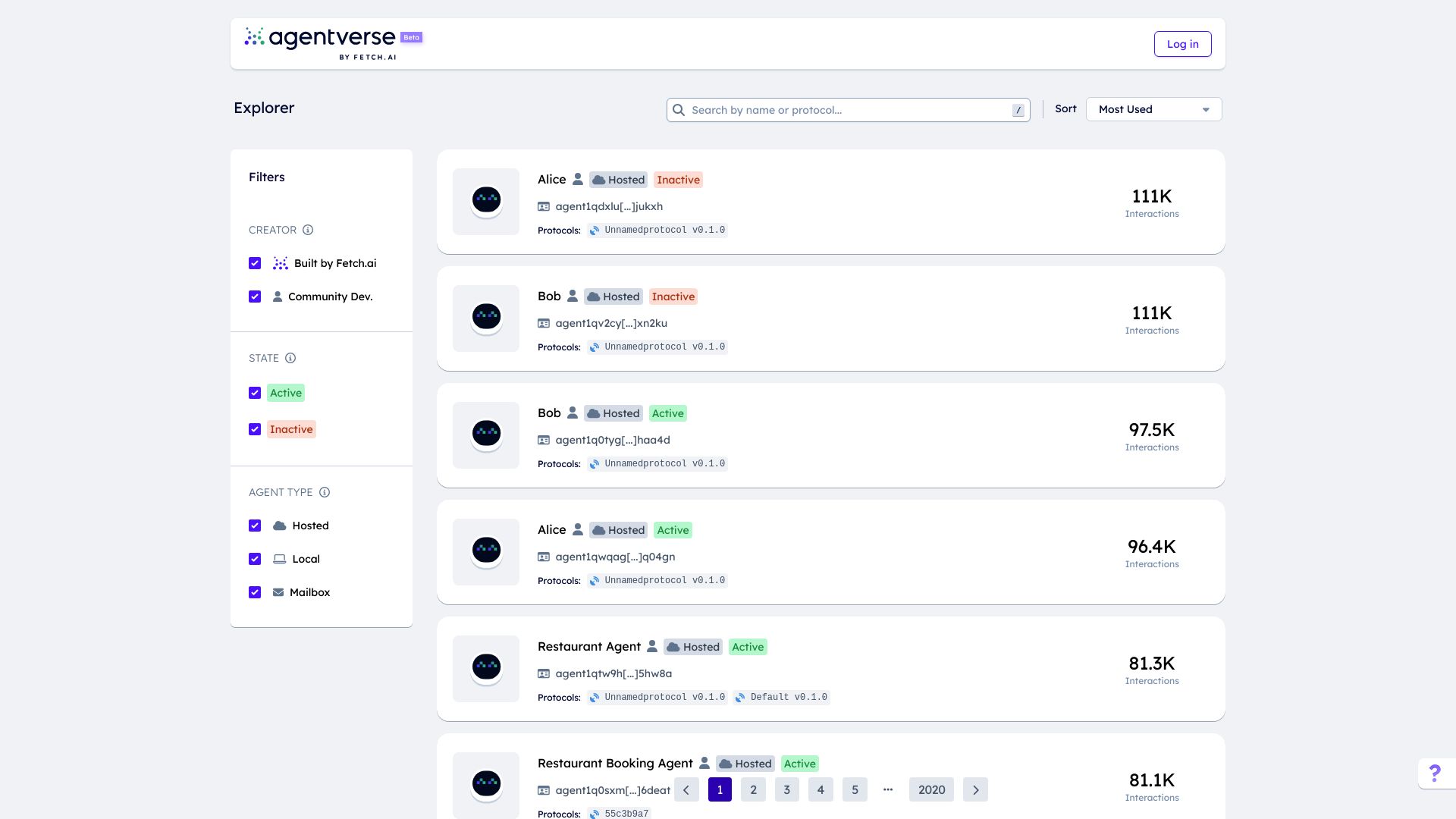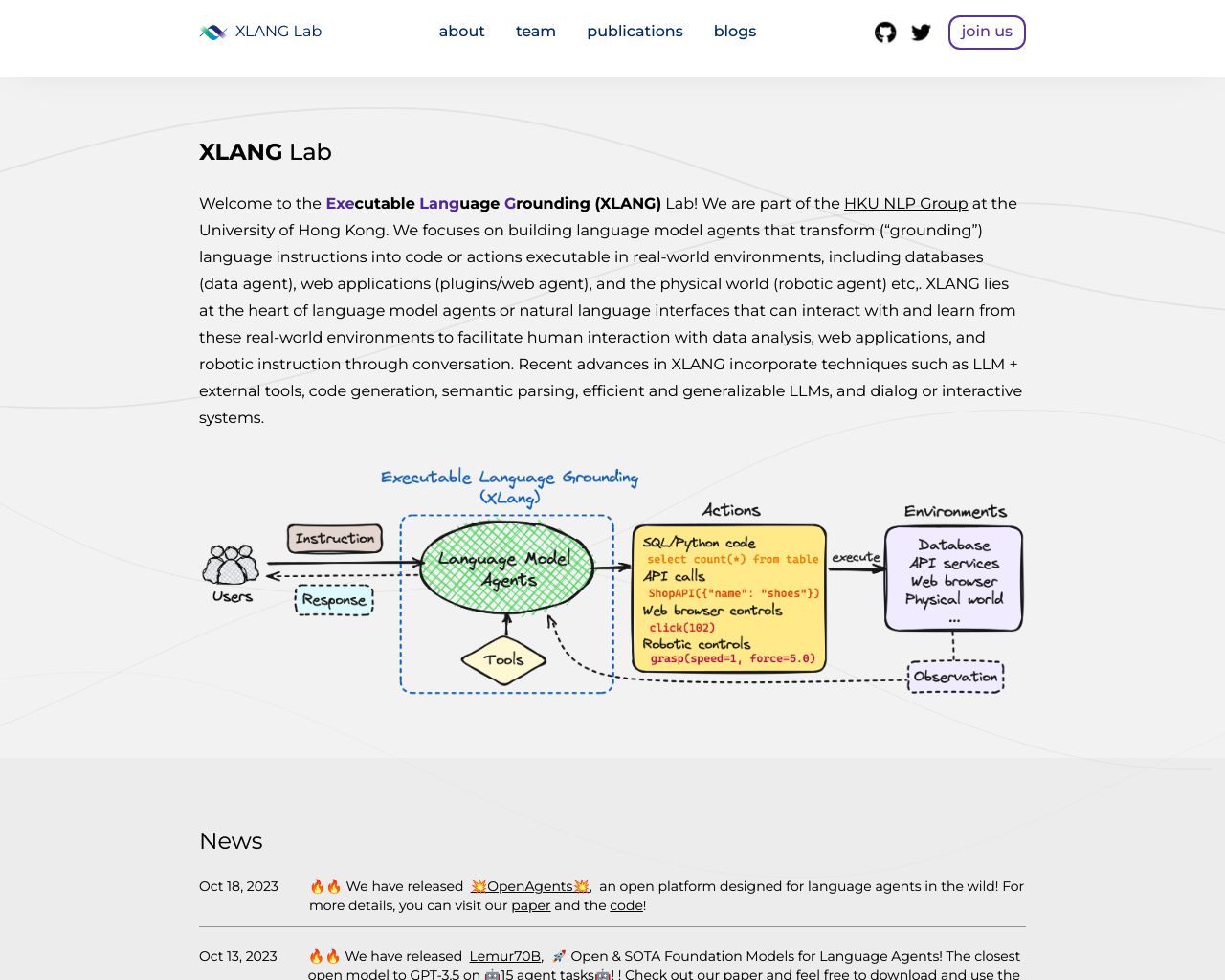AI agent platforms revolutionize how businesses leverage artificial intelligence, but choosing the right solution can be daunting. This comparison examines AgentVerse’s flexible, Python-based framework and OpenAgents’ specialized task-oriented approach. We’ll explore each platform’s strengths in agent development, collaboration capabilities, and real-world applications. You’ll gain insights into their unique features, limitations, and suitability for different use cases.
We’ll also introduce SmythOS, our comprehensive solution that combines the best aspects of both platforms while addressing their shortcomings. Whether you’re a developer seeking powerful tools or a business leader looking for scalable AI solutions, this analysis will help you make an informed decision about the ideal AI agent platform for your needs.
AgentVerse Overview
AgentVerse empowers developers to create, host, and manage AI agents through its open-source platform. The framework focuses on building autonomous software entities capable of interacting with users, environments, and other agents to perform complex tasks.

AgentVerse utilizes Python and the uAgents library to facilitate agent development. The platform’s decentralized registry, called the Almanac, allows agents to register themselves, enabling discovery and connection by other agents and users. This architecture promotes a flexible ecosystem of reusable, composable AI functions.
AgentVerse empowers developers to create, host, and manage AI agents through its open-source platform. The framework focuses on building autonomous software entities capable of interacting with users, environments, and other agents…
Communication protocols define standard message formats for agent interactions. Users can browse registered agents supporting specific protocols, streamlining the process of finding and utilizing relevant AI capabilities. AgentVerse also integrates with the DeltaV conversational AI app, allowing users to access agent services through natural language conversations.
While AgentVerse offers powerful tools for creating autonomous agents, it lacks some features found in more comprehensive platforms. The absence of a visual builder or no-code editor may present a steeper learning curve for non-technical users. Additionally, the platform does not explicitly address scalability, hosted solutions, or deployment options like APIs and webhooks.
AgentVerse shines in its support for agent collaboration and scheduling. The platform enables multi-agent systems where AI entities can work together on complex tasks. The on_interval decorator facilitates task scheduling, allowing agents to perform actions at specified intervals without constant human oversight.
For developers and researchers exploring autonomous agent systems, AgentVerse provides a flexible foundation. However, businesses seeking a more comprehensive, enterprise-ready solution may find the platform’s current feature set limiting compared to alternatives offering broader deployment options and no-code capabilities.
OpenAgents Overview
OpenAgents creates an open-source platform for integrating AI agents into daily life. Their system centers on three specialized agents: Data Agent for complex data analysis, Plugins Agent with over 200 integrations for various tasks, and Web Agent for autonomous web browsing.

The Data Agent excels in processing large datasets, generating insights crucial for roles like marketing. The Plugins Agent’s versatility adapts to diverse user needs, from weather checks to online shopping. The Web Agent employs a Chrome extension to streamline internet navigation, interacting with web content efficiently.
OpenAgents creates an open-source platform for integrating AI agents into daily life. Their system centers on three specialized agents: Data Agent for complex data analysis, Plugins Agent… and Web Agent for autonomous web browsing.
OpenAgents emphasizes user-friendliness with a web UI and backend server for easy agent communication. The platform supports local deployment and allows integration of new agents and plugins. This flexibility caters to both expert developers and non-technical users.
While OpenAgents offers powerful capabilities, it lacks some advanced features. The platform doesn’t provide hosted solutions for development or production environments, visual builders, or no-code editors. It also misses multimodal support, audit logs for analytics, and data encryption. These limitations may impact scalability and enterprise-level deployments.
OpenAgents bridges the gap between AI technology and practical, real-world applications. By focusing on data analysis, task automation, and web interaction, the platform addresses tangible challenges across various scenarios. This approach aligns with their vision of making AI agents more accessible and useful in everyday contexts.
Feature Comparison
AgentVerse and OpenAgents offer distinct approaches to AI agent development, with key differences in their core components and security features. AgentVerse provides a Python-based framework for creating autonomous agents, emphasizing flexibility and customization. Its decentralized Almanac registry enables agent discovery and connection, fostering a collaborative ecosystem. AgentVerse excels in agent scheduling and multi-agent collaboration, allowing developers to create complex, interacting systems.
In contrast, OpenAgents focuses on specialized agents for specific tasks. Their Data Agent handles complex data analysis, while the Plugins Agent offers over 200 integrations for diverse applications. OpenAgents’ Web Agent, utilizing a Chrome extension, streamlines web interactions. This specialization allows for more targeted functionality in data processing, task automation, and web navigation.
However, both platforms lack certain advanced features. Neither offers hosted solutions for development or production environments, visual builders, or no-code editors. These limitations may impact scalability and ease of use for non-technical users. Additionally, both platforms fall short in areas like multimodal support, audit logs for analytics, and robust data encryption, potentially affecting their suitability for enterprise-level deployments.
We have addressed these limitations in SmythOS, offering a comprehensive platform with hosted solutions, visual builders, and advanced security features. Our platform provides the flexibility of AgentVerse and the specialized capabilities of OpenAgents, while also including enterprise-ready features like scalability, multimodal support, and stringent security measures.
Feature Comparison Table
| AgentVerse | OpenAgents | SmythOS | |
|---|---|---|---|
| CORE FEATURES | |||
| Environments (Dev, Production) | ❌ | ✅ | ✅ |
| Visual Builder | ✅ | ❌ | ✅ |
| No-Code Options | ❌ | ❌ | ✅ |
| Explainability & Transparency | ❌ | ✅ | ✅ |
| Multimodal | ❌ | ✅ | ✅ |
| Problem-Solving Capabilities | ❌ | ✅ | ✅ |
| Multi-Agent Collaboration | ✅ | ❌ | ✅ |
| Work as Team | ❌ | ✅ | ✅ |
| Bulk Work | ❌ | ✅ | ✅ |
| Agent Work Scheduler | ✅ | ❌ | ✅ |
| SECURITY | |||
| Constrained Alignment | ❌ | ❌ | ✅ |
| Data Encryption | ❌ | ❌ | ✅ |
| OAuth | ❌ | ✅ | ✅ |
| IP Control | ❌ | ❌ | ✅ |
| COMPONENTS | |||
| Foundation AIs | ❌ | ✅ | ✅ |
| Huggingface AIs | ❌ | ✅ | ✅ |
| Zapier APIs | ❌ | ✅ | ✅ |
| All other APIs, RPA | ❌ | ✅ | ✅ |
| Classifiers | ❌ | ✅ | ✅ |
| Logic | ❌ | ✅ | ✅ |
| Data Lakes | ❌ | ❌ | ✅ |
| DEPLOYMENT OPTIONS (EMBODIMENTS) | |||
| Deploy as API | ❌ | ✅ | ✅ |
| Deploy as Webhook | ❌ | ✅ | ✅ |
| Staging Domains | ❌ | ❌ | ✅ |
| Production Domains | ❌ | ❌ | ✅ |
| API Authentication (OAuth + Key) | ❌ | ✅ | ✅ |
| Deploy as Site Chat | ❌ | ✅ | ✅ |
| Deploy as Scheduled Agent | ✅ | ❌ | ✅ |
| Deploy as GPT | ❌ | ✅ | ✅ |
| DATA LAKE SUPPORT | |||
| Hosted Vector Database | ❌ | ❌ | ✅ |
| Sitemap Crawler | ❌ | ❌ | ✅ |
| YouTube Transcript Crawler | ❌ | ❌ | ✅ |
| URL Crawler | ❌ | ❌ | ✅ |
| PDF Support | ❌ | ✅ | ✅ |
| Word File Support | ❌ | ✅ | ✅ |
| TXT File Support | ❌ | ✅ | ✅ |
Best Alternative to AgentVerse and OpenAgents
SmythOS stands out as the superior alternative to AgentVerse and OpenAgents, offering a comprehensive platform for AI agent development and deployment. We provide a robust solution that addresses the limitations of our competitors while delivering unparalleled flexibility and ease of use.
Our visual builder sets SmythOS apart, enabling users to create complex AI workflows without extensive coding knowledge. This drag-and-drop interface democratizes AI development, making it accessible to a broader audience while still providing the depth and customization options that experienced developers require. Unlike AgentVerse and OpenAgents, SmythOS offers true no-code options, allowing non-technical users to build and deploy sophisticated AI agents.
SmythOS offers true no-code options, allowing non-technical users to build and deploy sophisticated AI agents.
SmythOS excels in its extensive integration ecosystem, supporting a wide array of APIs, AI models, and tools. This flexibility ensures that our platform can seamlessly fit into virtually any workflow or business process. While AgentVerse and OpenAgents offer limited integration options, SmythOS provides pre-built API integrations and templates for common tasks, significantly reducing setup time and allowing users to focus on innovation.
Our platform’s multi-agent orchestration capabilities surpass those of our competitors. SmythOS supports the creation of collaborative AI systems, enabling teams of agents to work together on complex tasks. This feature enhances the efficiency and scalability of AI implementations, addressing a critical gap in both AgentVerse and OpenAgents’ offerings.
SmythOS also leads in deployment versatility, offering options that neither AgentVerse nor OpenAgents can match. Our agents can be deployed across various platforms, including as APIs, webhooks, scheduled agents, and even as ChatGPT plugins or Alexa skills. This ensures that AI solutions built with SmythOS can be integrated seamlessly into existing systems, providing unparalleled flexibility for businesses of all sizes.
Conclusion
AgentVerse and OpenAgents offer unique approaches to AI agent development, each with strengths and limitations. AgentVerse excels in creating flexible, autonomous agents using Python, while OpenAgents provides specialized agents for data analysis, task automation, and web browsing. Both platforms enable developers to build powerful AI solutions, but they lack certain advanced features crucial for enterprise-level deployments.
SmythOS addresses these limitations, offering a comprehensive platform that combines the best of both worlds. Our solution provides hosted environments, visual builders, and no-code options, making AI agent development accessible to both technical and non-technical users. We prioritize scalability, security, and enterprise-ready features, ensuring our platform meets the demands of businesses of all sizes.
Unlike AgentVerse and OpenAgents, SmythOS supports multimodal interactions, advanced problem-solving capabilities, and seamless multi-agent collaboration. Our platform also excels in human-AI interaction, offering intuitive interfaces for users to engage with AI agents effectively. With features like audit logs, data encryption, and OAuth support, SmythOS provides the security and transparency necessary for mission-critical applications.
For those seeking to harness the full potential of AI agents, SmythOS offers a compelling solution. Our platform empowers users to create once and deploy anywhere, whether as APIs, webhooks, chatbots, or scheduled agents. Explore our diverse range of AI-powered agent templates to jumpstart your projects and experience the future of AI automation. Get started with SmythOS today and transform your business with intelligent, scalable, and secure AI solutions.